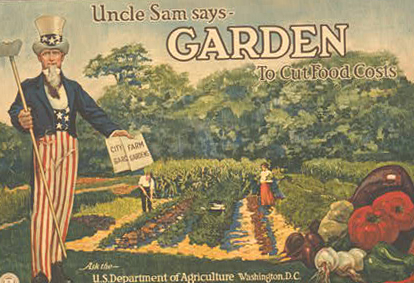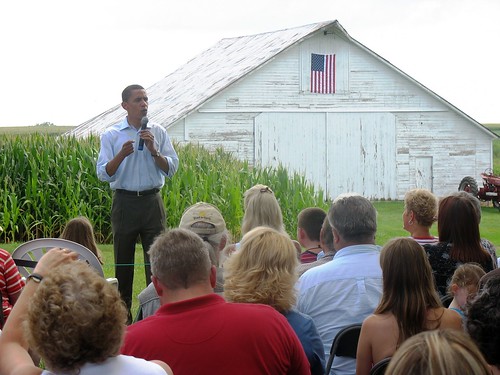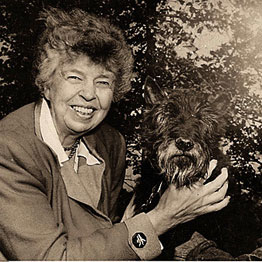This is Harvey, our accidental Ameraucana rooster.* His life began as a "packing peanut" thrown in with a hatchery order of pullets (female chicks).
 One of our pullets, a lovely Silver-Laced Wyandotte
One of our pullets, a lovely Silver-Laced Wyandotte
 A Speckled Sussex pullet
A Speckled Sussex pullet
 Little Felix, the first goat kid born on our farm, a buckling. Our solution to the "extra males" problem in his case was a buck trade with another local farm - he'll help diversify the gene pool in their herd and little Merlin, who came to us in the trade, will help diversify ours.
Little Felix, the first goat kid born on our farm, a buckling. Our solution to the "extra males" problem in his case was a buck trade with another local farm - he'll help diversify the gene pool in their herd and little Merlin, who came to us in the trade, will help diversify ours.
 A mature Black Australorp hen and other members of our flock
A mature Black Australorp hen and other members of our flock
Last year, when we decided to get serious about chickens, we ordered 25 pullets from Eagledove Greenhouse, a locally-owned garden center that offers brooding services.
Since a lot of beginning chicken-keepers don't feel confident doing their own brooding (taking care of the chicks for the first few weeks of their lives, mimicking the care of a mother hen), this is a great service offered by a wonderful local business that we wanted to support. Eagledove also fed organic chick starter, which was a great bonus. Win-win, right? Supporting a local business, getting started with chickens, organic layers ready to kick-start our yard egg sideline at the tailgate market.
Here's where the story gets complicated. Our friends at Eagledove ordered our chicks from Mount Healthy, a hatchery in Ohio, who shipped the chicks via the postal service.
I admit that I chose not to look too deeply into Mount Healthy, or spend too much time thinking about what happened to all of the male chicks with the thousands of female chicks being shipped out every day. I knew it wasn't likely to be a train of thought that ended up in a happy place.
I had already been plotting out future chick orders from Sand Hill Preservation Center, which ships only "straight run" (unsexed) chicks because they are a no-kill hatchery. I remembered having heard bad things about hatchery practices and it didn't take a lot of brainpower to figure out that if Sand Hill was a "no-kill" straight run hatchery, that the alternative to "no-kill" is "kill." I was feeling kind of overwhelmed with life at the time that we decided to place our order, though, and decided for once just to go with what was easy and not spend a ton of time researching where these chickens were coming from.
 One of our pullets, a lovely Silver-Laced Wyandotte
One of our pullets, a lovely Silver-Laced WyandotteAll 25 of our heritage breed chicks arrived, plus one extra. At six weeks old, these little chickens were integrated into our existing flock of 7 Buff Orpintons, and then we added 10 2-year-old Black Australorps that we bought for a good price from a neighboring farm.
At some point in the past month, I began to feel pretty confident that the extra chicken was a rooster. At the same time, I started working on our next chick order (this time we'll be ordering from Sand Hill and brooding them ourselves) and thinking more deeply about roosters.
I decided to go ahead and look behind the curtain and see how many (if any) of the big commercial hatcheries were "no-kill."
 A Speckled Sussex pullet
A Speckled Sussex pulletI knew we wanted to order from Sand Hill anyhow because of their focus on heritage breed genetics. I had been reading a lot about heritage poultry and learning that the big commercial hatcheries don't pay nearly as much attention to preserving heritage breed qualities as smaller-scale heritage breeders do. In fact, many don't consider hatchery birds to meet the technical definition of "Heritage Breed." I won't go down that rabbit trail too far here, but suffice to say that just as with the definition of the word "heirloom" in the vegetable world, there's a lot of controversy about the use of the word "heritage" in the livestock world. The American Livestock Breeds Conservancy is a good place to start if you're interested in that rabbit trail.
Back to the subject at hand: commercial hatcheries and their rooster practices. There is a ton of bad information out there on this subject. By "bad," I mean: incomplete, inaccurate, and outright untrue. One of the things you will find if you just start googling "no-kill hatchery" is a series of claims on various forums that various hatcheries are "no-kill." For instance, here's a post on homestead.org stating in no uncertain terms: "Both Meyer and MyPetChicken are no-kill hatcheries." The poster even goes on to explain: "This means that like most hatcheries, most of their customers want hens, not roosters. Rather than kill the roosters that they are unable to sell as day old chicks, they send them to livestock auctions."
"Wow," I thought, "could a big hatchery like Meyer really be a no-kill facility?" It turns out not so much. Following up on the homesteading.org post, I came across this grisly news story from a newspaper in Ohio (where Meyer is based): Two Ohio Hatcheries Violate Livestock Care Standards by Suffocating Chicks. I won't get into the details here, but suffice to say, it takes a high degree of animal suffering to violate the paltry standards that exist for animal welfare.
And for anyone who clicked through to the story, the next surprise is already out of the bag, but guess the name of the second Ohio hatchery cited by the state Department of Agriculture. Yep, none other than Mount Healthy. Which is where our chicks came from.
Which brings me back to Harvey. It would appear that Harvey was spared a pretty awful death (crushed and/or smothered by hundreds of other chicks stuffed alive in a garbage bag) by getting slipped in to our pullet order by an employee at Mount Healthy. I'm glad. Having him around will enable us to make more Ameraucanas without having to order from a hatchery, although our birds will surely be, like him, more along the lines of "Easter Eggers" than top-of-the-line Ameraucanas.
But of course that doesn't address the much bigger problem of roosters. Which is part of an even bigger discussion about the ethics of "extra males" in the world of animal husbandry.
It's a topic about which Sharon Astyk has written about beautifully in her post, "Blood on Our Hands: Dealing Ethically With the Problems of Husbandry". I heartily recommend reading Astyk's whole article, but will excerpt a really excellent bit here:
"But we're still a long way from fully grasping that agriculture itself is steeped in death, and that we can't escape that reality as long as we depend on it. We'd be steeped in death even if we were all to become vegans (which is unlikely in the extreme) as domesticated livestock breeds went rapidly extinct because there was no reason to raise them anymore, and we lost the sound and sight and relationship that tie us to these animals that we have chosen for domestication - and that chose us as well. Even if we were vegan we'd be steeped in death as combines behead rabbits and roll over the nests of ground nesting birds. We'd be steeped in death as we increasingly mined scarcer soil minerals that we used to get from animal manures.
The truth is, we can't get out of death - or its corollary, life. These animals we rear get to live because of what we eat as well. They get their day in the sun, their breeds continue and go forward because we eat them or their products. The truth is that there is no full escape from the problem of death here - there is only the careful consideration of the material conditions of both life and death."
 A mature Black Australorp hen and other members of our flock
A mature Black Australorp hen and other members of our flockThis discussion is important not only for people who raise chickens -- either commercially or on the backyard scale or somewhere in between (like us). We aim to have a flock of about 100 by the end of this year, so we're a little beyond the backyard scale, but certainly tiny compared to "real" chicken farmers. It's also important for people who eat eggs or chicken, especially if you're concerned about where your food comes and the ethics of animal welfare.
As backyard chicken-keeping has become increasingly popular in the past five years, people have begun raising chickens on a home scale presumably at least in part because they care about where their food comes from. I'm curious if and how this issue has been discussed in backyard chicken circles--I haven't seen it, but I have really not been deeply involved in those networks. Here's an article from The Oregonian that spells it out pretty clearly, including the responses of hatcheries to questions about the issue: As backyard chickens increase in popularity, roosters' fate is nothing to crow about.
So I end this post uncertain, just having laid some of the issues out. I'm curious to hear how other chicken-keepers have thought about these things. We'll be ordering some quantity of straight-run chicks from Sand Hill in the spring, and will likely have both roosters and pullets for sale. That said, we haven't decided if we would be willing to sell roosters to someone who's going to butcher them. I'd honestly rather do that ourselves here on the farm, where we can trust that it will be a quick, humane death. But that's a subject for another time.
*Harvey is named after Harvey Ussery, who has written eloquently on the subject of the ethics of roosters and chicken breeding, among other topics covered in great depth in his excellent book, The Small-Scale Poultry Flock, which I reviewed in an earlier post. Ussery hates the use of the word "rooster" to describe male chickens - that's your teaser to entice you to read more in his book.



























